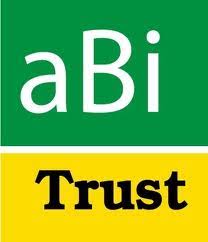I learned long ago that strategy retreats are the corporate equivalent of a well-lit comedy room. Everyone enters with optimism, speaks with measured confidence, and leaves with a perfectly framed set of commitments that die within weeks. I do not get uncomfortable because retreats are bad. I get uncomfortable because retreats are dishonest, not maliciously dishonest, but structurally dishonest. They reward posture over truth, comfort over clarity, and performance over leadership. The first time I realised this, I was facilitating a retreat for a large public-sector organisation. The room was beautiful. The banners were crisp. The participants were seniors. But from the moment we began, I sensed what I have now seen across sectors: the loudest voice was running the room while the real power sat silently at the back, taking notes and quietly deciding which commitments would never be implemented. It was a masterclass in pretence. That is when I understood why my discomfort is not a weakness; it is a diagnostic tool. Most strategy retreats suffer from a dangerous assumption. The assumption that alignment is declared, not demonstrated. Leaders nod together, but their calendars and budgets tell another story. In 2019, I worked with a commercial team that agreed on a bold growth plan, and everyone clapped. Everyone signed off, yet the moment we returned to the office, recruitment was frozen, budgets were tightened, and the energy that had filled the retreat evaporated. It was obvious the retreat had been a performance. Alignment had existed only in the room, not in the organisation. You want to know the priorities of the business? Look at the item consuming the biggest budget. Executives underestimate how quickly staff detect this gap. Employees know when strategy is a joke. They know when a retreat has produced a glossy document that nobody intends to live out. They feel the mismatch between what is said and what is done. It shows up in passive resistance, quiet frustration, budget allocation, and declining engagement. Culture begins to fail long before the strategy does. The most consistent flaw in retreats is the dominance of strong voices over strong ideas. I have seen technical experts silenced because their insights were inconvenient. I have watched specialists shrink because their reality did not fit the room’s optimism. A retreat should be the safest space for hard truths, but in many organisations, it is where honesty goes to die. Teams mistake confidence for competence, and the result is a strategy shaped by volume rather than wisdom. This dynamic is reinforced by another trap: the comfort of past success. Nothing kills future strategy faster than “This is how we have always done it.” Past victories become emotional anchors. Leaders cling to old models because they feel familiar, even when the evidence is screaming for change. Some time ago, I advised a financial institution that refused to retire an outdated product line because “it once worked.” This bank had so many products, some of which accounted for less than 0.001% of the total annual revenue. They defended a relic while the market evolved around them. Strategy demands forward energy, not emotional loyalty. The truth about strategy retreats is that real strategy requires pain. It demands trade-offs. It forces leaders to prioritise with surgical precision. But retreats often drift into collective wish-listing. Every idea is accepted. Every department must be included. Every sentiment must be honoured. When everything is strategic, nothing is. I once pushed a team to drop two of their five priorities. They struggled for an hour. That is when I knew they had no strategy. They had a dream. Hidden agendas make this worse. I have facilitated retreats where leaders agree publicly but sabotage privately. They nod in the room but whisper different instructions to their teams. They speak of unity but maintain old loyalties. In one case, a senior leader wrote implementation actions enthusiastically, then told their team the following week to “stick to the old plan.” This is not corruption; it is fear. Fear of loss. Fear of accountability. Fear of real change. Retreats rarely address this fear, and so the organisation lives with invisible friction. The failure of execution does not begin during implementation; it begins the moment the retreat ends. Most retreats produce a beautiful set of action points, but the ownership is vague. The timelines are wishful. The reporting structures are ambiguous. Action points sit in the retreat report, unclaimed. Within 30 days, excitement fades. Within 60 days, the retreat is a memory. Within 90 days, the organisation is back to business as usual. So, as Mr Strategy, why do I remain uncomfortable in these spaces? Because I know what is at stake. I know that a strategy done well can transform institutions. I have seen organisations rise from the edge of irrelevance because leaders chose honesty over comfort. I have also seen institutions collapse slowly under the weight of polite conversations and unchallenged assumptions My discomfort is a gift. It forces me to interrogate the energy in the room. It helps me see the truth behind the statements. It allows me to read the body language of silent people who control an informal power centre. It helps me identify the subtle behaviours that will sabotage execution. Retreats do not fail because leaders are incompetent. They fail because leaders are human. Humans avoid discomfort. We choose harmony over truth. We protect our status. We preserve face. But strategy is not face-saving. It is choice-making. What boards and executives should know is simple. A powerful strategy retreat is not about excitement; it is about clarity. It is not about speaking; it is about deciding. It is not about the best speech; it is about the toughest trade-off. It is not about consensus; it is about courage. If the retreat ends and no painful decisions were made, then no strategy was formed. A future-proof organisation must treat strategy retreats as operating rooms, not comedy rooms. People must enter prepared to confront truths, not to perform a show of alignment. Budgets must reflect decisions. Calendars must demonstrate commitment. Leaders must model the behaviours they expect. Without this alignment between talk and action, strategy becomes an annual ritual rather than a competitive advantage. Who I am is simple. I am the strategist who refuses to be entertained. I am uncomfortable because I have seen too much. But that discomfort is exactly why leaders bring me into the room. I help you strip away the polite illusions, confront what others avoid, and build a strategy that actually lives beyond the retreat. Strategy deserves honesty. Leaders deserve clarity. Organisations deserve a future built on truth, not performance. And discomfort, in the hands of the right strategist, is the beginning of real transformation. I remain, Mr Strategy














